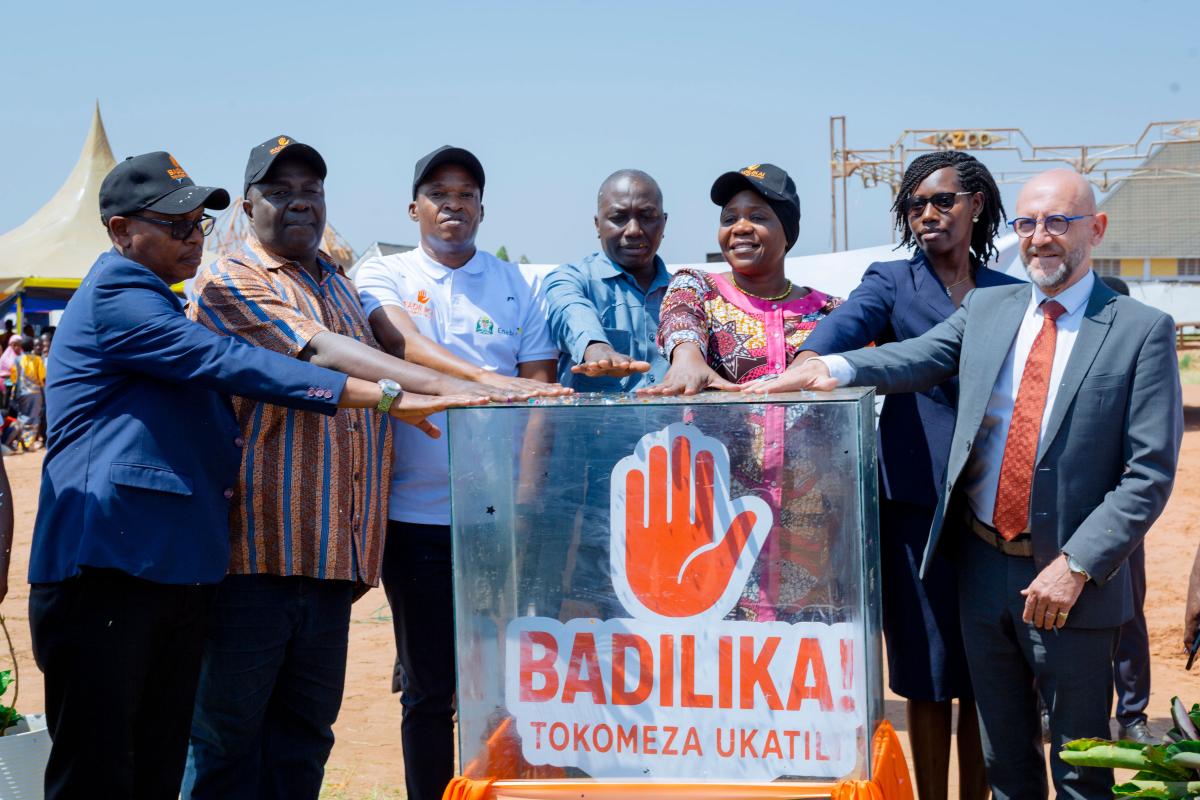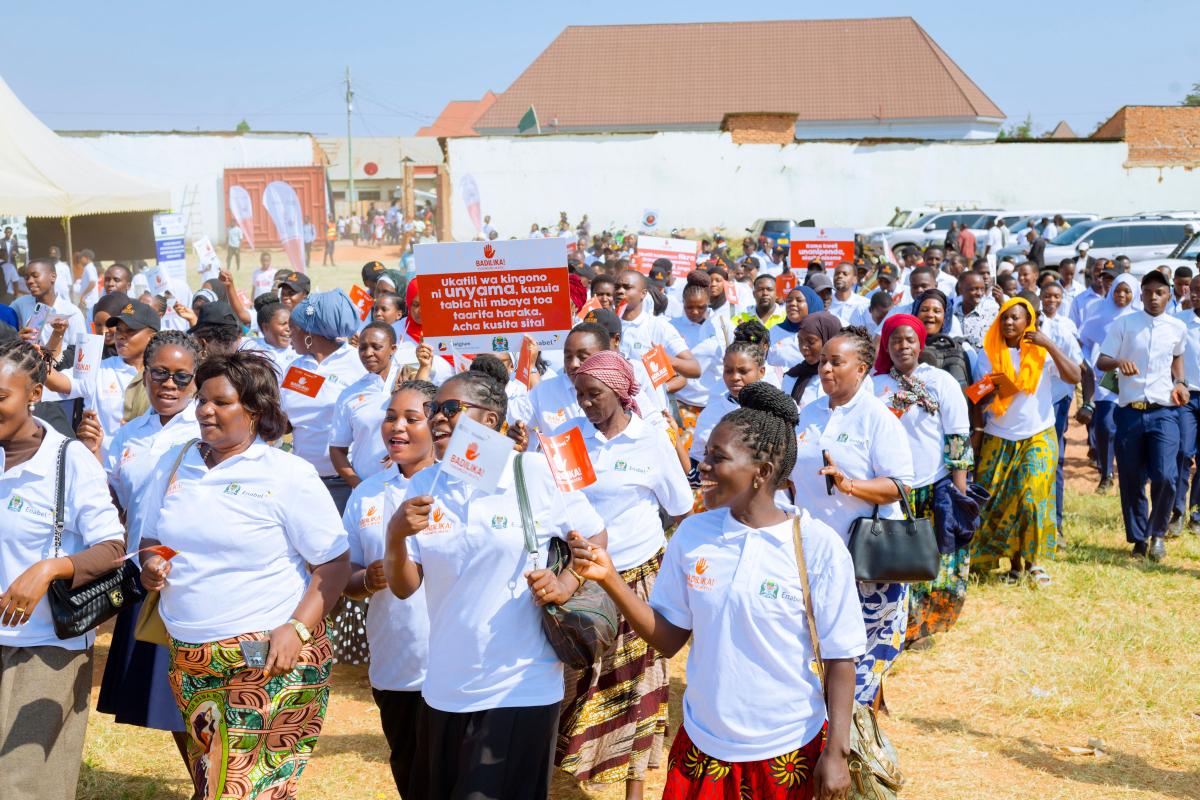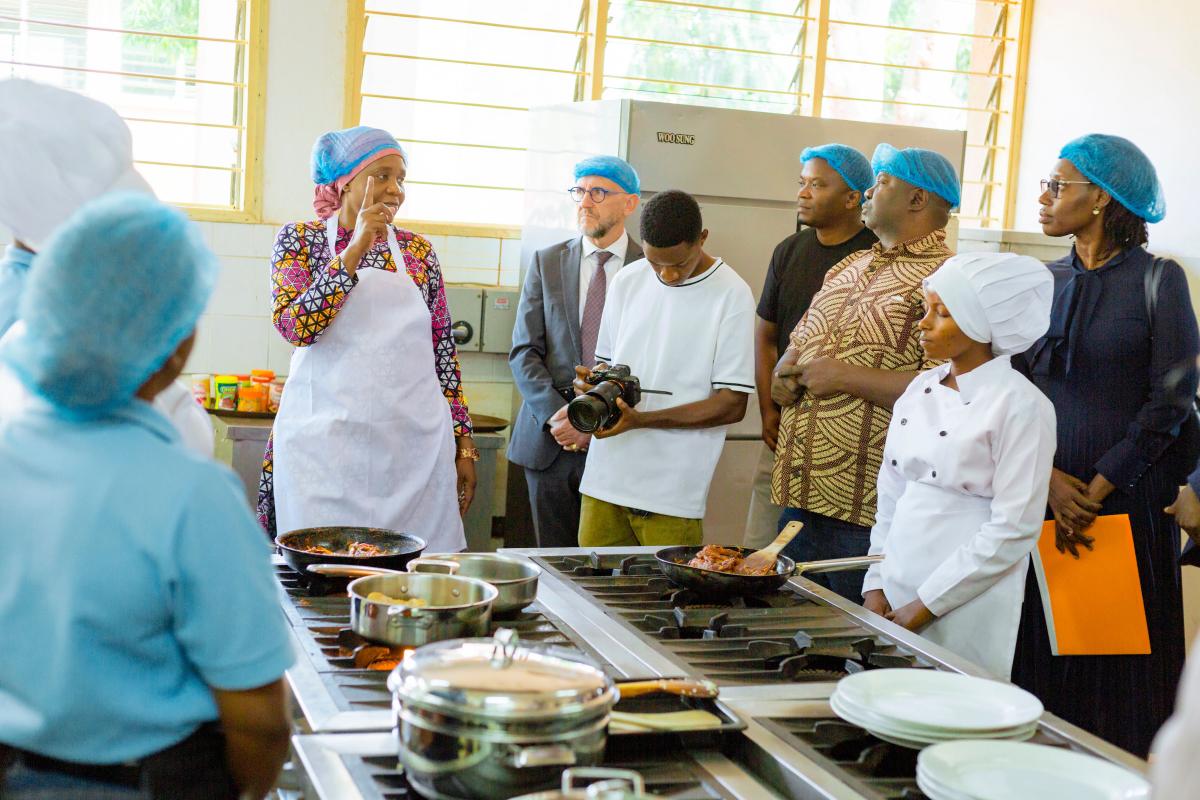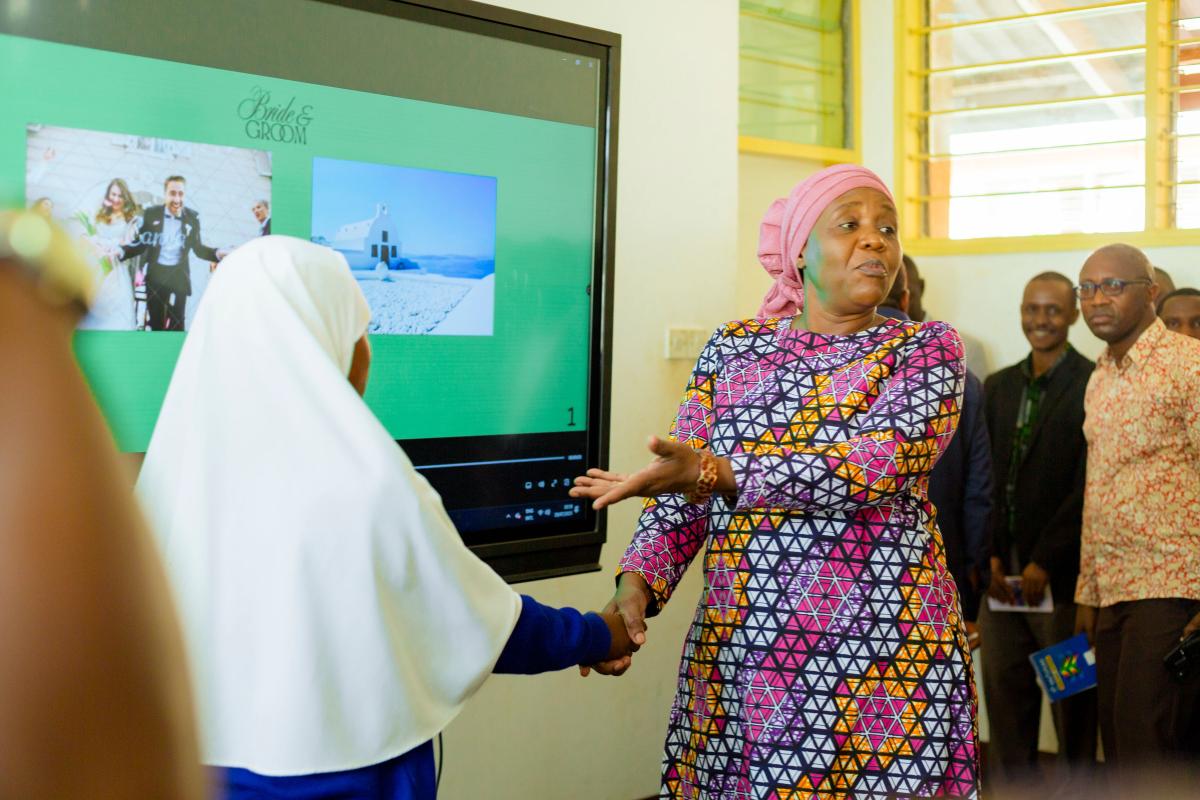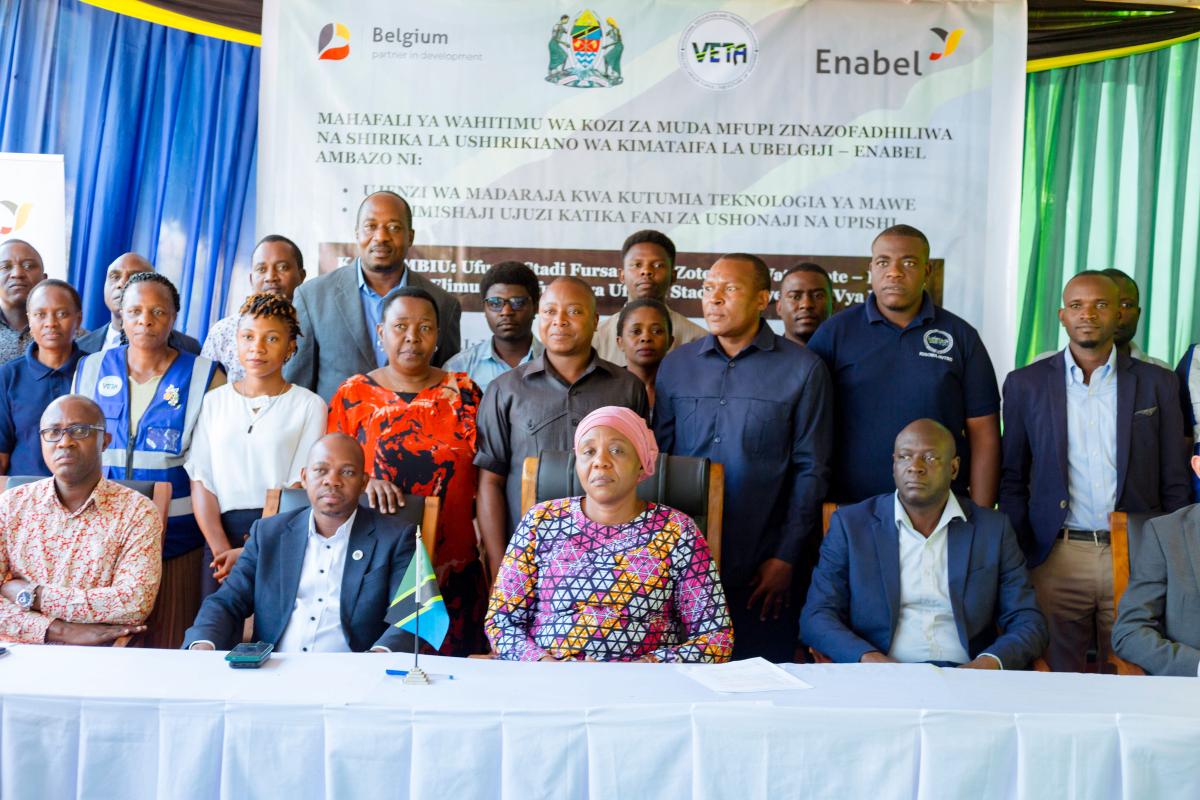What does change mean for the Kigoma region?
If we want to end gender-based violence, we can’t rely on promises, we have to shift mindsets, challenge silence, and rebuild the systems that have allowed harm to go unchecked for too long.
That shift officially began this week in Kigoma with the launch of Badilika: Tokomeza Ukatili, a campaign aimed at preventing and ending violence against women and girls. Spearheaded by Enabel in Tanzania, together with local women- and youth-led organisations in Kigoma and the Government of Tanzania through the Ministry of Community Development, Gender, Women and Special Groups, the campaign is rooted in one powerful belief: that change is possible when communities lead it themselves. The launch, held at Mwanga grounds, was a moment of energy, reflection, and commitment. Hon. Dr. Dorothy Gwajima, Minister for Community Development, Gender, Women and Special Groups, officially opened the campaign with a call to action: “Badilika! Ukatili Kigoma sasa basi!” She reminded the crowd that violence is not inevitable and that through community-led action, Tanzania can create a future free from fear, silence, and harmful social norms. Enabel’s Country Director, Mr. Koenraad Goekint, underscored the importance of local ownership and youth leadership, noting that “real change begins in our homes, our schools, our places of worship, and our communities. It requires each of us to take responsibility to listen, to speak out, and to act.” A powerful musical performance by Dogo Paten energized the audience, amplifying the campaign’s message through rhythm, lyrics, and local voice.But this campaign is more than a one-day event. It is a movement aiming to reach 150,000 community changemakers by 2027,individuals who will each inspire at least three others to shift attitudes and behaviours, challenge harmful traditions, and take a stand against gender-based violence. The approach is intentional, personal, and bold.
The next day, the Minister visited sites where this kind of change is already underway.
The morning began at VETA Kigoma, one of the Wezesha Binti project grantees under Result Area 2. In the masonry class, students demonstrated practical construction techniques, including work inspired by stone-arch bridge building from the SAKIRP project. The Minister later visited one of these completed bridges in Bweru village, seeing first-hand how local skills and knowledge are being passed on, turning infrastructure into both employment and empowerment. While at VETA, the Minister was also introduced to the Gender Desk supported by Enabel. Though small in scale, the desk plays a vital role in helping students report gender-based violence, access guidance, and get referred to trusted service providers, from paralegals and police gender desks to one-stop centres like the one at Maweni Hospital. These are the safe spaces where stigma breaks and support begins.
In the afternoon, the visit continued to Wakulima Secondary School, one of 25 secondary schools supported by the Wezesha Binti project. There, the Minister saw how education is being used not only to teach, but to transform. The school is part of a wider strategy to address the barriers girls face in accessing and staying in school, from harmful gender norms to distance, stigma, and poverty. Through close work with parents and local leaders, the project uses the Champions of Education model to strengthen community advocacy and mentorship. Menstrual Hygiene Management mobile tents have already reached hundreds of students with vital information on sexual and reproductive health and rights, and new gender-sensitive SWASH facilities are being installed to create safer, more inclusive school environments.
The school is also addressing affordability directly. At Wakulima alone, 16 students including 12 girls are receiving full support, covering uniforms, learning materials, food, exam fees, and boarding needs. And with 17,550 textbooks distributed across all 25 schools, including 200 for Wakulima, students now have better tools to succeed. All 19 teachers at Wakulima are enrolled in continuous professional development programmes that cover gender-responsive teaching, ICT, STEM, climate education, and learner-centred approaches.
At the heart of all of this is one core message: “when girls are safe, supported, and seen they thrive. And when a community invests in its girls, everyone rises”.
At the end of the day, the Minister awarded certificates to 154 youth, 43 of whom had completed modular training in stone-arch construction, while others were recognized through prior learning in food processing and tailoring. For many, this recognition was more than formal. It was a reminder that their future is theirs to shape.
In Kigoma, the campaign isn’t asking for change. It’s proving that change is already happening. Through local leadership, through youth-led action, and through the kind of collective commitment that turns vision into reality.
Badilika! Ukatili Kigoma sasa basi. Because when transformation begins with people, it doesn’t just last it multiplies.
Latest news from this project
No news
